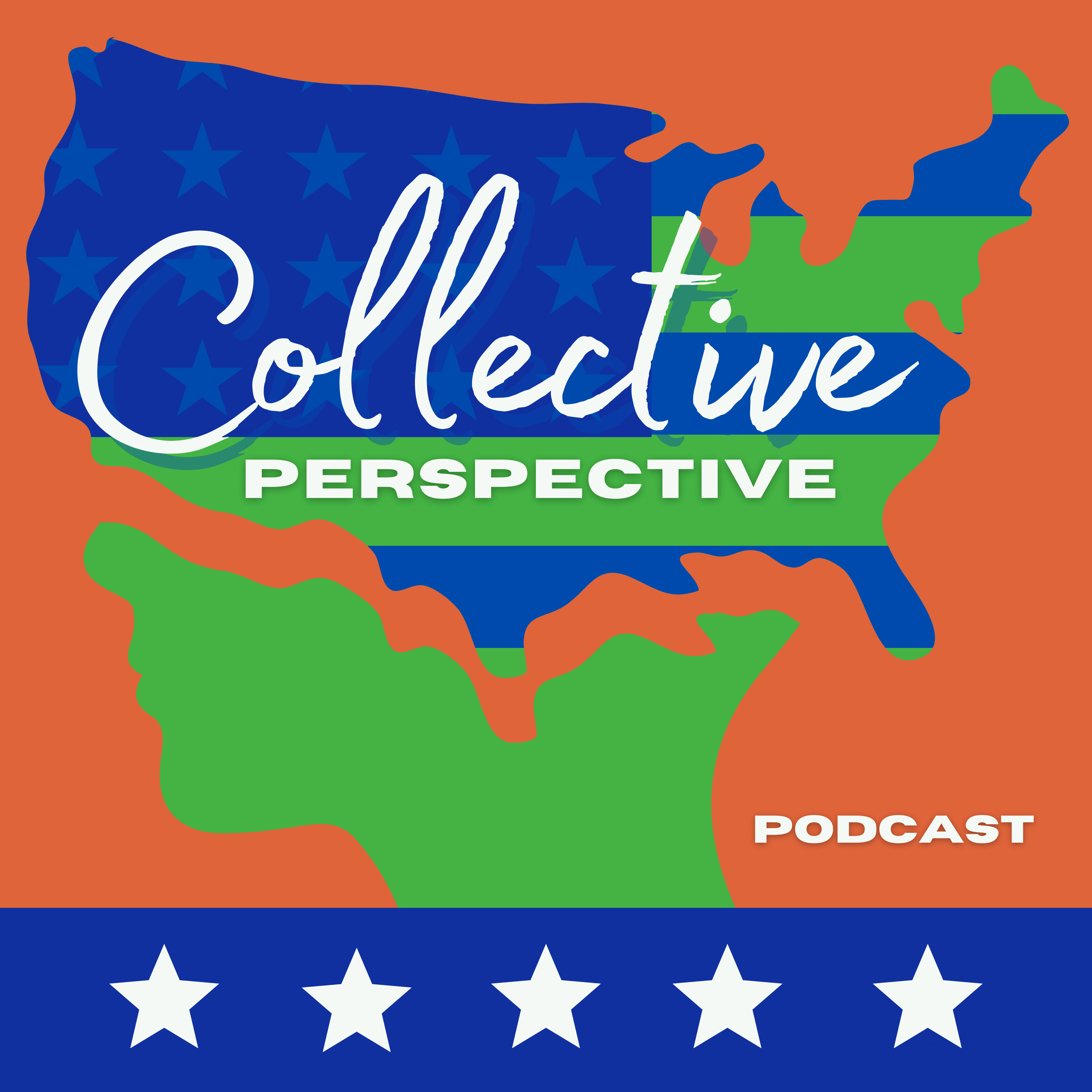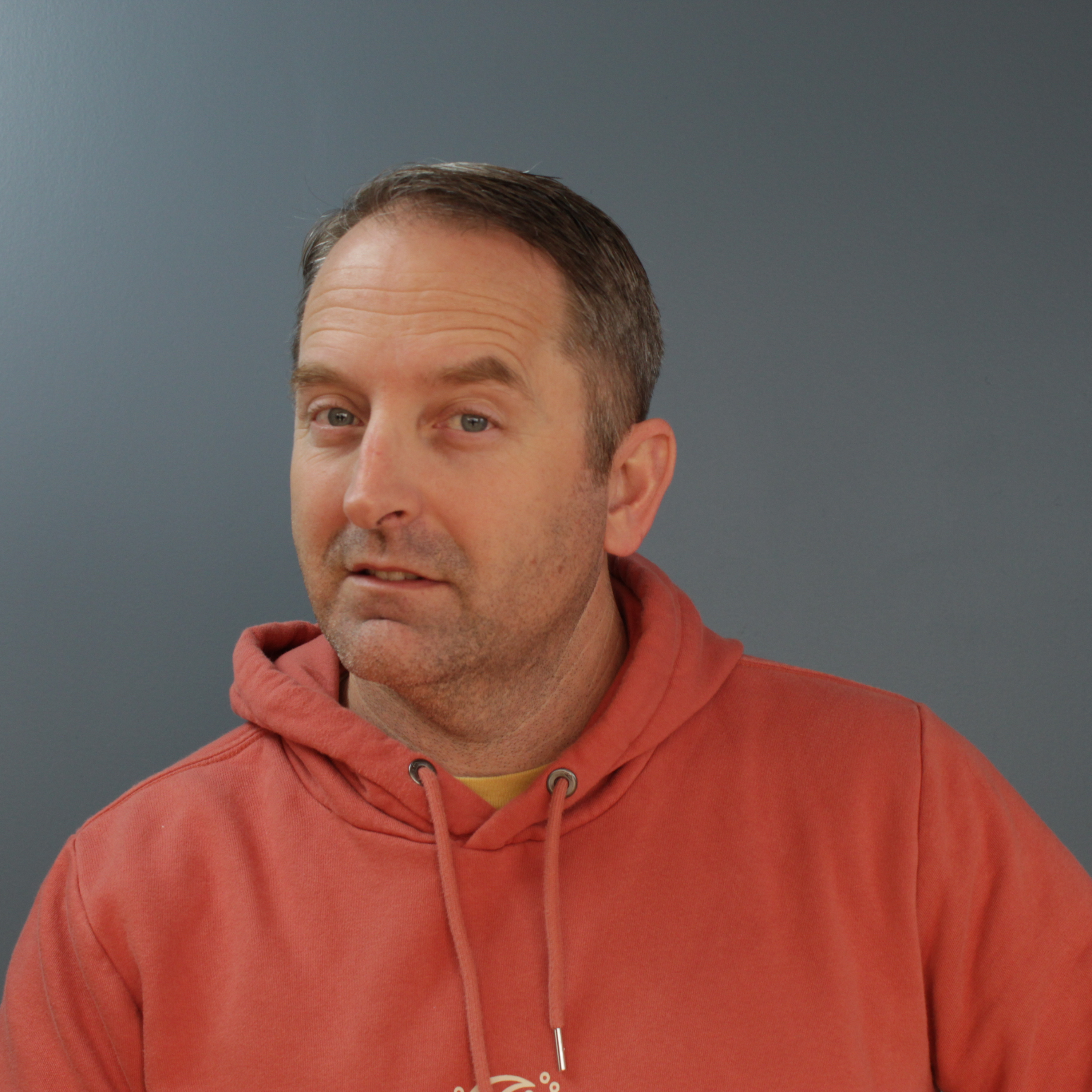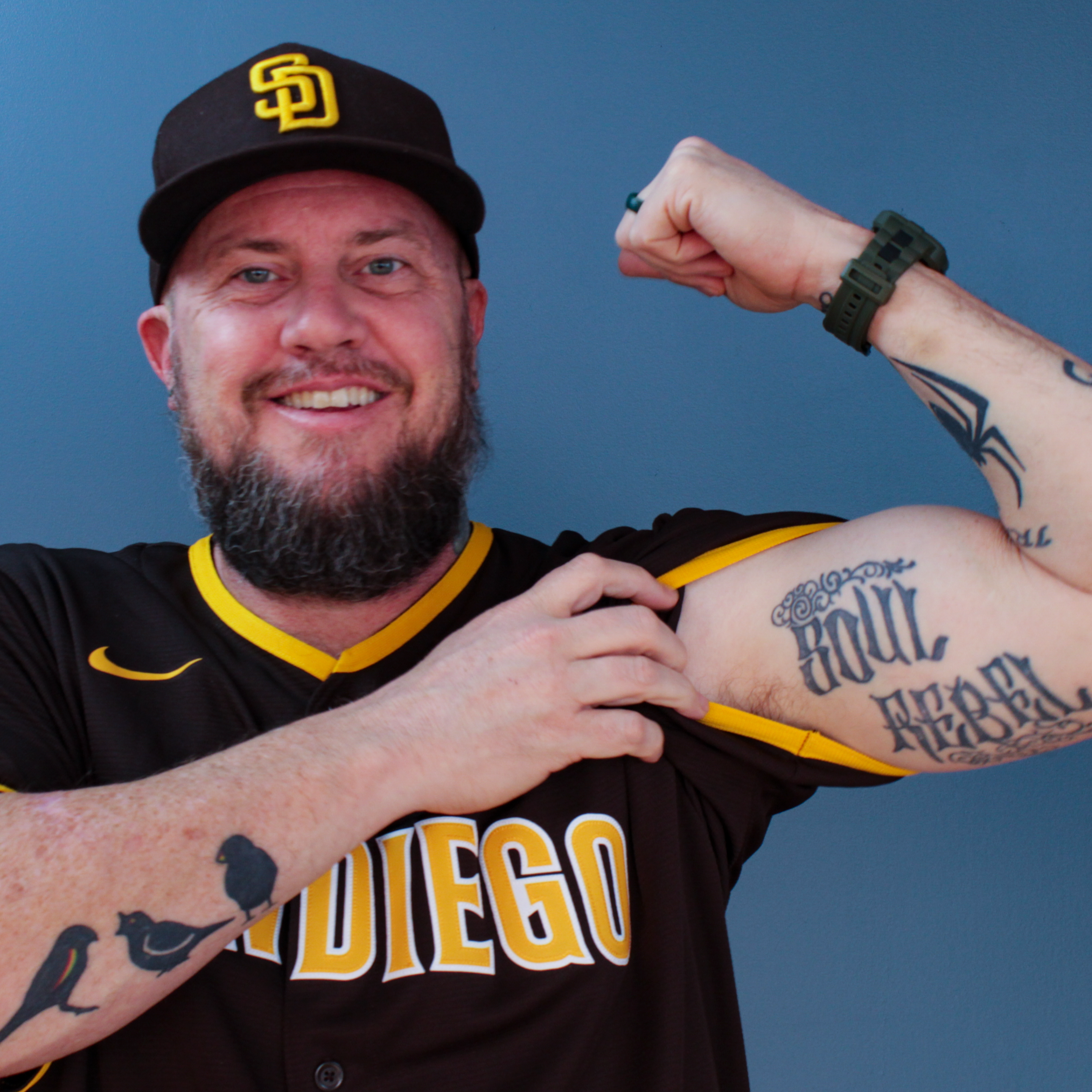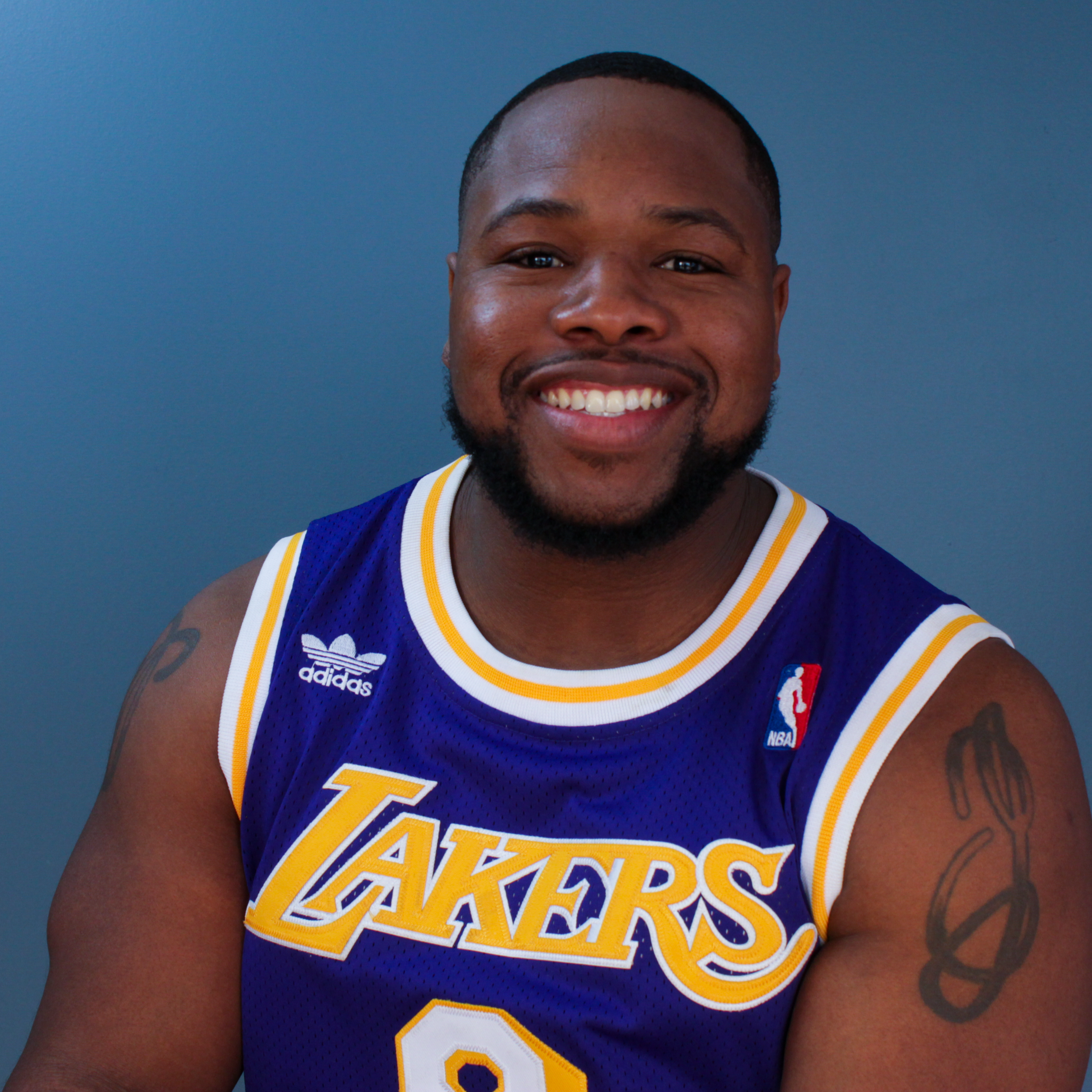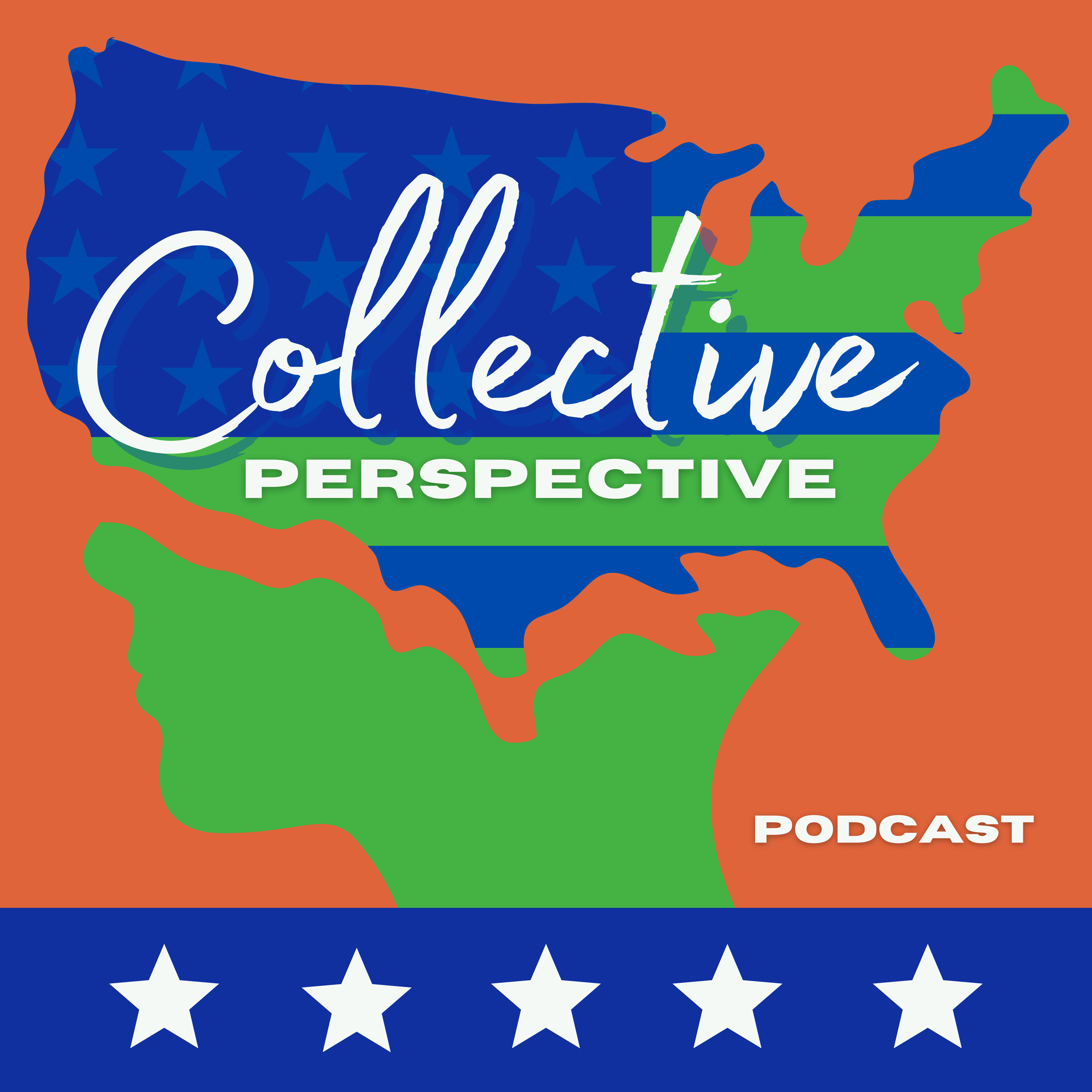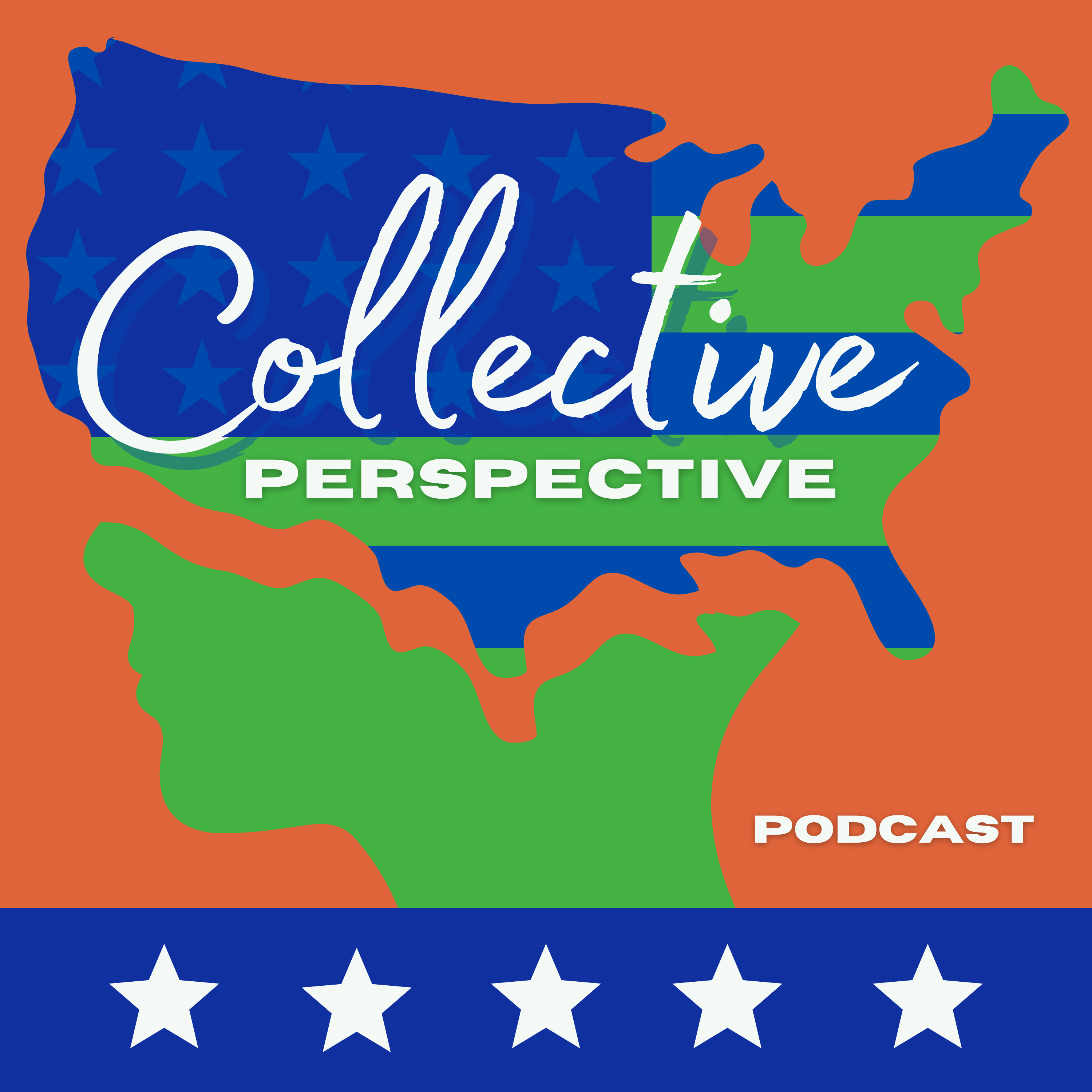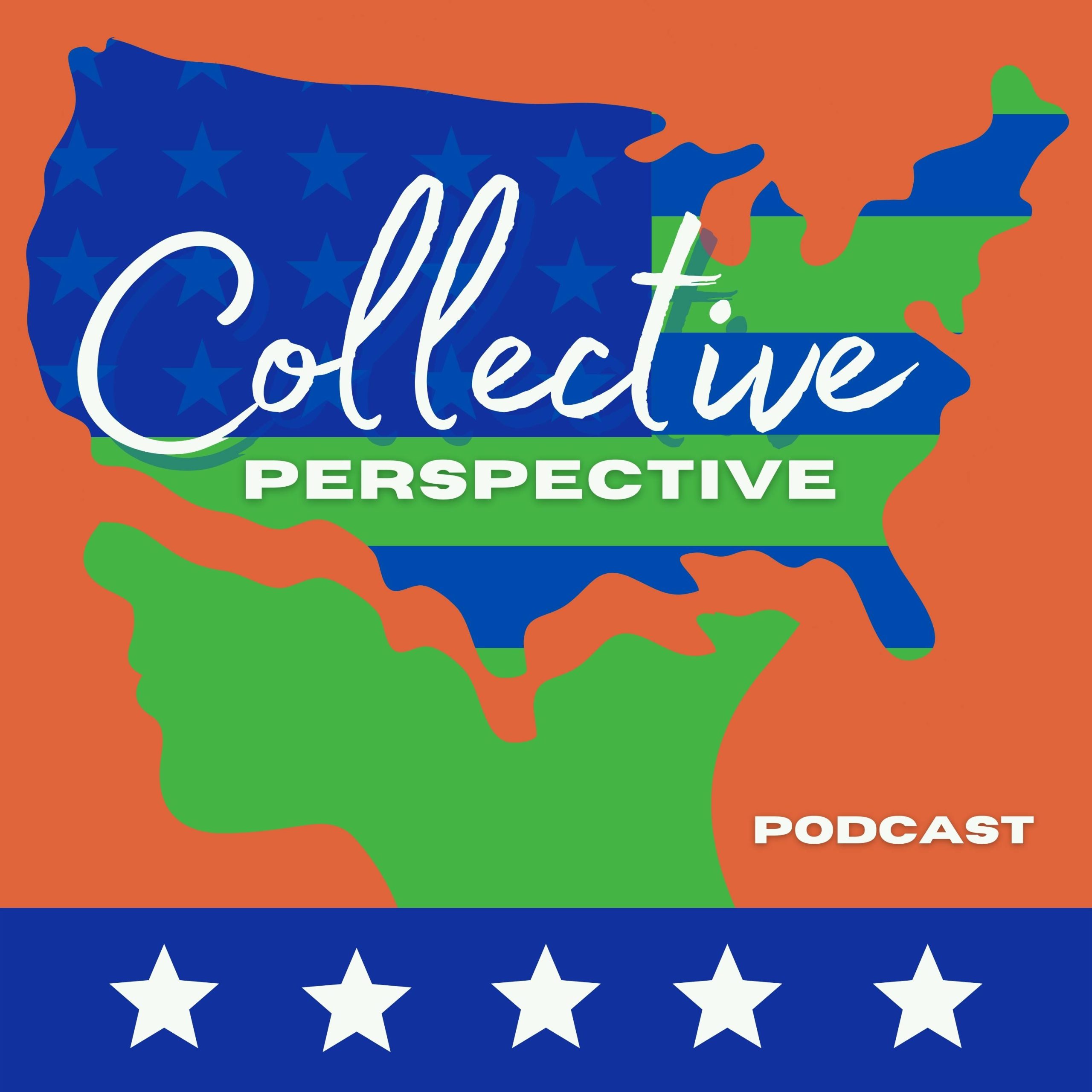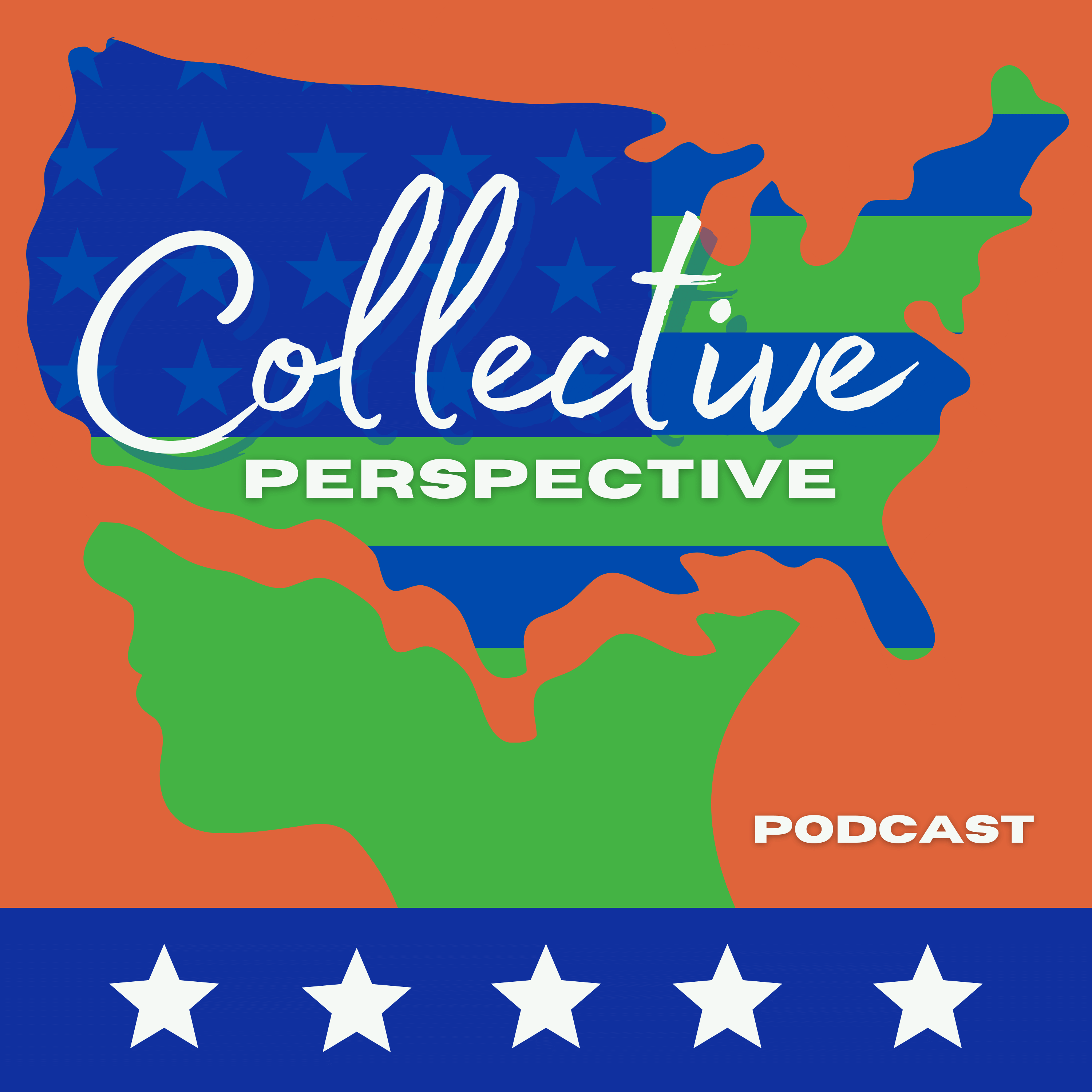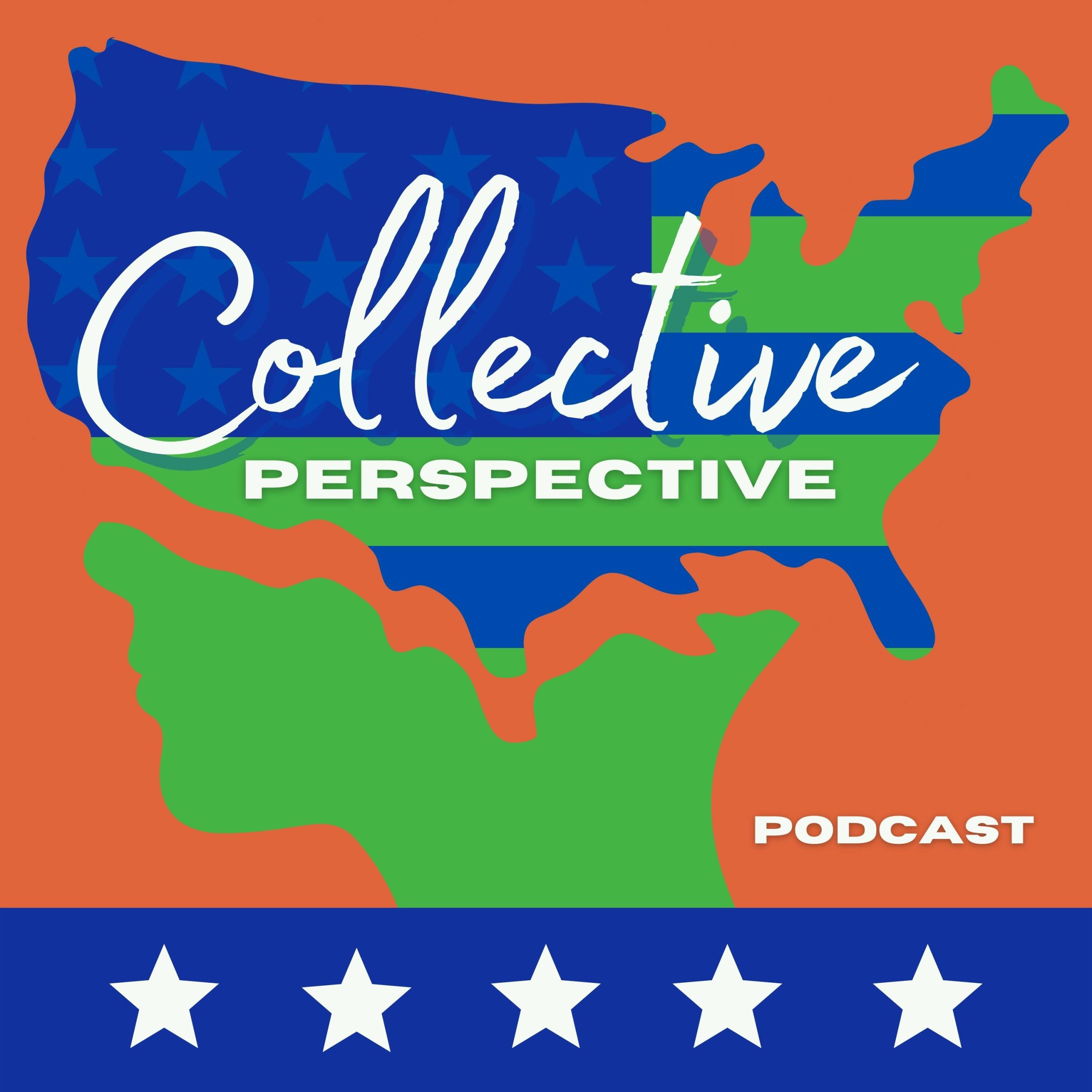Episode Transcript
This isn't just a podcast, it's a reminder. A reminder of what makes America Stronger isn't the headline or a hashtag. It's people from the ones building our homes to the ones rebuilding their lives, veterans, tradesmen, neighbors and volunteers, real people doing real things. Here we find common ground first, and then we work on our differences.
This is the collective perspective podcast where purpose, people, and progress. Hey everybody. Welcome back to the Collective Perspective podcast. My name is Jeff and I'm here with my buddy Travis. What's up, Trav? What's up Jeff? Hello everybody. Welcome back. Glad to be here. Today we're talking about shifting from consumer to contributor.
That sounds pretty interesting there. Jeff. How do we, uh, how do you suppose we do that? Um, what is the difference between the two? Well, I think it's a matter of getting or giving. Is it not? Yeah, I think so. That's what basically cord comes down to. Yeah. Getting or giving, um, give it to me now, or, uh, here, let me help you with that.
Well, it's more like, how can I get it more? How can I help you get it? There we go. Okay. Still tying in with that last topic a little bit, huh? Yeah. I wanted to bridge in, um, consumerism and identity with, um, labeling identity. I, I think a lot of us. Are labeled. As a matter of fact, we're sold our labels more than we are sold our products.
Are we not? Yeah, I think so. I think, I think that, that, that holds true. We're, uh, easily targeted as someone that buys this, as this demographic. Absolutely. We are labeled by corporations, uh, labeled by our peers. Based on what our outward appearance, our general actions we're labeled, uh, by pretty much anything.
Uh, pardon me, everything. So Travis, if I said, Hey, we've been replaced with who we are, with what we are, what we own, and what we subscribe, how would you feel about that? Uh, I would feel that it would be misleading, uh, because I think. Uh, our outward appearances and, uh, many times our public personas are different than our private people today.
Express identity through brands, lifestyles, and clothes and stuff like that. Um, I don't really see myself being that. Um, you can walk down the street and look at something that somebody's wearing and stereotype them and think that, hey, this is the type of person they are, and you can label them. You can label anybody walking down the street or you come across me.
For instance, I, I wear surf brands. I grew up surfing. I've always worn surf brands and I've always liked that culture. The, the surf mentality, if you will. Uh, nothing, nothing better than a day at the beach. And, you know, that's that. Kind of is me, but more laid back. That that was a large part of, uh, me. And, you know, it, the, the advertisers, the, the corporations that produced those, those items.
They got me hook, line, and sinker. 'cause I liked the style. I liked the, the look, and I liked what, uh, uh, the what, what, what, what am I looking for? The, the culture that it. Expressed, I wonder what kind of label I get for this big old tattoo on my neck. I wonder what judgements. Uh, I think that's really what it is, is like prejudgments of people by the way they look.
You know, I, I you, that's, that's, that's a valid point. But I think today, artwork, ink work, tattoos, people don't really think twice about it unless it's in a very. A, a more conspicuous spot. 'cause as, as I'm looking at you, as we're talking here, you don't really notice that tattoo. It's when you turn that people would notice it.
So yeah. I, I think the tattoos these days are really artwork and that's how people see it, I think. Yeah, definitely. Uh, we're just, you know, giving you an example of labels, of course, but. What we're really talking about is, and as that label with the, uh, with, with the tattoos, people used to think, oh, a tattoo person, they're, they're a bad guy.
They're up to no good. They've got all this ink work. They must have been in jail or something that I think that used to be the stereotype for tattoos or like, oh, you're a sailor. You must, uh, you must, uh, be an alcoholic. I, uh, there's probably some truth to that.
I don't drink alcohol that much anymore, so, um, maybe I'm not much of a sailor anymore. I don't drink it that less anymore either. So, uh, but hey, we're talking about today, uh, to get back a little bit more on topic, uh, becoming a cons, uh, going from a consumer to be a contributor. I think a lot of that you can do it in your jobs.
Uh, I I believe that's something that you are as a contributor to society. I, I think a lot of the service industry is a very contributory to society. Yes. Well, there's two types of things that people sell and that's service in a product. Right. So if you're selling your service, is it a product still? Yes, it is.
Uh, they're still paying for that, but there is some reward that comes out of it, right. Yes. Uh, for, for me. And, and that's, and the service that I provide. Yes, I get to see somebody's health improve. I get to see somebody's day improve, uh, and, and see somebody believe in themselves more, because I do a lot of rehab stuff as well.
And that's, that's a, a kind of giving, a kind of, uh, kindness and a kind of, uh, uh, it is just, I don't know, maybe more. Uh,
contributory to society that way. Well, you definitely, uh, helping people get better. So that's, uh, contributing to society. But maybe I should try to work on, as you mentioned in the last episode, uh, you challenged me to do an act of kindness outside of work and that would be more contributory to my local community, not just my work community.
Well, it's not that it's a bad thing that you do things, but you're being paid to be kind. You're not being paid to be mean, right? Or you're not being paid to being difficult. Uh, that's not your purpose there. Right. But you're, you're there provide, you're being paid to provide a service that is contributing to society.
Yes. And it's, it's kindness because I, well, I guess there are some grumpy nurses. There can be grumpy nurses, but they don't last long. Right? No, they don't. They don't. Because again, it's your skills that get you in the room and your personality that keeps you right. Yeah. Yeah, it is. So I think, um. I think a lot of people have a hard time becoming a consumer.
Uh, I keep on saying, becoming a consumer. We're consumers Okay. Becoming a contributor. Uh, there's, what do you think are some roadblocks for that? Uh, uh, that's, that's a tough one. Some of the roadblocks could be, um, personal motivation. Really. I think it's mental, dude, like, am I good enough or I don't have the time.
Yeah, I, I don't have the time would be, uh, something that I could see a lot of people falling back on. Uh, am I good enough? I think everybody would like to believe they're good enough for just about anything. Um, but are they putting it in practice? Are they, are they showing themselves that they are good enough every day?
Uh, but being, you know, not having the time that, uh.
That, that can be a big obstacle. I think. I think being a contributor to society can be a multitude of different things, um, from some that encourage, some organize, uh, some repair. But again, we're getting talk about, uh, we're getting back into the topic of diversity, uh, right back to the topic of division.
And those are the things that divide us is, uh, all of these topics that we've been talking about lately are all bridged and combined together to really get down to what we're after. Um, maybe not what we're after, but where we're headed. And that is highlighting the people in the United States that are contributors, the quiet people, the quiet force that does make America great.
I'm so tired of hearing on the social media and stuff how America's not great. We did this and we did that. Um, we can't dwell on the past. We gotta look forward and I think there's a bright future for us if you keep a positive attitude. One thing and uh, I'll give you some time, Travis, one thing I was gonna say and try to encourage people to do.
Is every day the first thing you do instead of turning on your cell phone is maybe you sit there and you think about the three things that you're grateful for. Start the day with what you're grateful for, and you'll be amazed on how different your day is on a daily basis. Positive affirmations.
Positive affirmations to yourself. I think we're all just inundated with all of this information readily at our fingertips or. Uh, in the palm of our hands. I mean, who would ever imagined when we were growing up, Travis, that we were gonna have some Star Trek things in our hands? Yeah. Tell us, uh, what, what did they call?
Oh, wait, star Trek. Whoever thought that the sci-fi movie thing was gonna be reality. Yeah. Well, we thought we wait was eighties, but we're not getting into that. Um, yeah, I kind of would like to maybe talk about the psychological cost of consumption. I, I, I like that, that, that topic about, you know, when you consume things, you know, there, there's, um, you know what, there was a popular term back in, I don't think it was that long ago, but it, somebody will probably correct me down in the comments.
It was probably like 30 years ago. But, uh, retail therapy. Yeah, that was something that people would do. They'd go out and you notice all of our malls have closed because everything's online now. 'cause everything's online now. Um, so the malls are closing down around us, but people would go out, they'd get that rush from that buy that purchase.
Well, we talked about in previous episodes about consumerism in itself. And it's the release of endorphins. Yeah. When, when they go to consume something. Um, you get a release of endorphins when you hit place. That order on Amazon, believe it or not, you get a hit of endorphins when you see, oh, it's arriving today.
It doesn't even matter what it is. That's true. That's true. Uh, and maybe that's what the difference is between consumer, uh, versus contributor. Consumers are, they're always getting that rush, uh, when they purchase something or when they, when they buy something or they're getting something from someone or from somewhere.
Uh, but the, the contributor. It's a, it's a whole different mentality. I think you, you, the contributor is someone who gets that same joy from giving back, from doing something for someone else. I think, am I, am I on the right track there or is that, is that a little bit off? I kind of see it as the, the consumer.
So for example, your kids, your kids are, uh, part of your, your family and they are consumers. Until they actually contribute to something like chores. So it, it goes a little bit beyond that because they're consuming, consuming, consuming and not contributing to the family in that sense. But they are contributing to the family and being contributors by their mere presence and their love, and, uh.
Learning from their mistakes and their funny gestures. You know, like kids say the funniest things, and they definitely do. And that contributes to your emotions and your endorphins as, as a parent and the overall wellbeing of the family unit or, uh, the, the relationship of the parents and children. Like, let's face it, we all want to be long.
But the kids at some point become contributors. So the child that gets a job at 18 and now has to pay mom and dad something, or the child that's responsible for doing the laundry or washing the dishes or mowing the lawn is contributing to the family and not just being a consumer of the family on on a different level.
Right. Yeah. So on an emotional level, there's the, you know, we talked about passive and aggressive. Or, uh, active, passive and act. Sorry, was that a little passive aggressive? Uh, no. Passive, passive and active kindness. Um, I think it, I think it goes hand in hand. Uh, contributor, um, consumer or consumer contributor?
I think I, I, I, I, I see that. Yes. Uh, they go, they do go hand in hand. Um, so, but which one takes the lead? Well, uh, I think it, it depends on what your role is in the, in that community or that, um, that tribe. It's not my daughter's responsibility at four years old to go mow the lawn. She can't be expected to contribute in that way.
Right. Um, the only thing she's expected to contribute is like, please stop crying. No, I'm just kidding. Uh, no, no. Uh, for the little, for the little ones from my sanity, it's, uh, Hey, can you put that in the garbage for me, please? Yes. Can you, Hey, look at that. Can you please pick up after yourself please? A little bit of kindness, a little bit of humility.
Go. I guess it's just integrity. What, what do you do when, um, honor, courage, and commitment, ethics. You remember those core values? Honor, courage, and commitment. Honor, courage, commit, honor, doing the right thing when no one's watching. Well, I think doing the right thing when no one's watching is ethics too.
Um, you know, um. Not doing the wrong thing, I guess. I don't really have an example. No, that's, uh, I guess an example of doing the right thing when no one's watching. Uh, I like cars a lot, so that's, that's kind of like my release, my hobby, um, doing the right thing when no one's watching. You're driving home at two in the morning, there's no one at the stoplight.
You got a red light. Do you stop or do you just go through it? No one's watching. There are no red light cameras there that you're aware of. Do you stop or do you just go through it? Absolutely. No one on the road. Well, the other day I sat there for five minutes trying to make a turn, and there was absolutely no one on the road.
I went. Uh, there are rules though for that. Is there? Yeah, I didn't know that. Like motorcycles sometimes aren't heavy enough to trigger a turn signal, so if it goes through a light cycle and it goes back and forth, I think it's two times they're allowed to go. If it's clear. I mean, who's to say that you aren't?
I guess that's the whole point, right? Yeah, that's true. Did you go anyway without it being there and just run all the lights? I think that would draw some attention from the Gators on the sidelines. I mean the, you know what I mean? Uh, but yeah. What, what makes someone show up when they're not, when, when no one's watching?
I think, uh, again, it comes down to ethics, but it's dedication. Uh, I think, um, you know, if you have a team, uh, a soccer team and people don't show up when they're supposed to show up. Then how are you supposed to win the game? Right. I don't know if that's a good example. Yeah. I'm not sure. I, I, I know what you're saying, but yeah.
I don't think that one, that one's gonna work. All right. Uh, let's scratch that right there. Uh, I'm not qualified. Let's just go to, or I, it won't make a difference. Oh, we already talked about that. All right. Those are the things that held back. We're, we're just gonna go close it out and say, talk about the everyday contributor.
Highlight the volunteer. The coach. The fixer. The giver. Watch. Here we go. So, hey, uh, to close out this episode, we'd like to ask you, the listener to. Give us some suggestions, throw a name out there, give someone our information about this podcast. We want to highlight the quiet strength that makes this country strong.
And those are exactly what we are leading to here. And this episode is being a contributor. So we're looking for someone that volunteers someone that's out there that takes time from their own life. To make a difference in someone else's and doesn't get paid for it. Now, that doesn't mean, well, I guess I can't really say it doesn't get paid for it because I think a teacher is a contributor.
But I think, uh, teachers in public schools, uh, I, let's put this way, do these people go above and beyond? I feel that they do. Right, because I would say that most teachers, the teachers that I've encountered just recently with my son, is that these teachers go above and beyond and they're beyond what is required as a teacher.
I would say that even Travis, you go above and beyond as a contributor. You're not just a nurse, you're not just a supervisor. You're much more than that. And that support is what? Makes it strong. What, what makes the core of your business, uh, your, your job strong? And, um, I think anybody could say that, um, that is a contributor that really loves what they're doing.
And, uh, again, if you have someone out there in Jacksonville, we'd love to interview those people. Just a 30 minute podcast highlighting what they do for society. And giving them the recognition. It could be, uh, a volunteer. It could be a, a veteran that owns a business. It could be a coach. Uh,
a fixer. Well, a fixer. What do you mean by a fixer? Someone who repairs things.
Well, there's people that go out there and just fix things. I don't know, I, I, I don't know, man. Isn't it just like, uh, the person that you go to that knows how to fix things?
You know what? I'm watching a series right now and the on fixing things on, on basically the guy's a fixer. It's a, well, you already knew the answer. What you begging me for? No, it's, it's, oh, it's what is a fixer check? It's called Mob Land. Mob Land. Oh, he fixes problems. Yes, he fixes problems. I don't think that's the type of fixer we were going for.
Are you even paying attention? It's a, that's a, it's a series on HBO Cinemax, the Max app, uh, with Tom Hardy. Hey everybody, thanks for watching this episode from consumer to contributor and everything in between and what that means. Thank you for joining us today. Look forward to reading your comments in the down below, and can't wait to see you next time.
